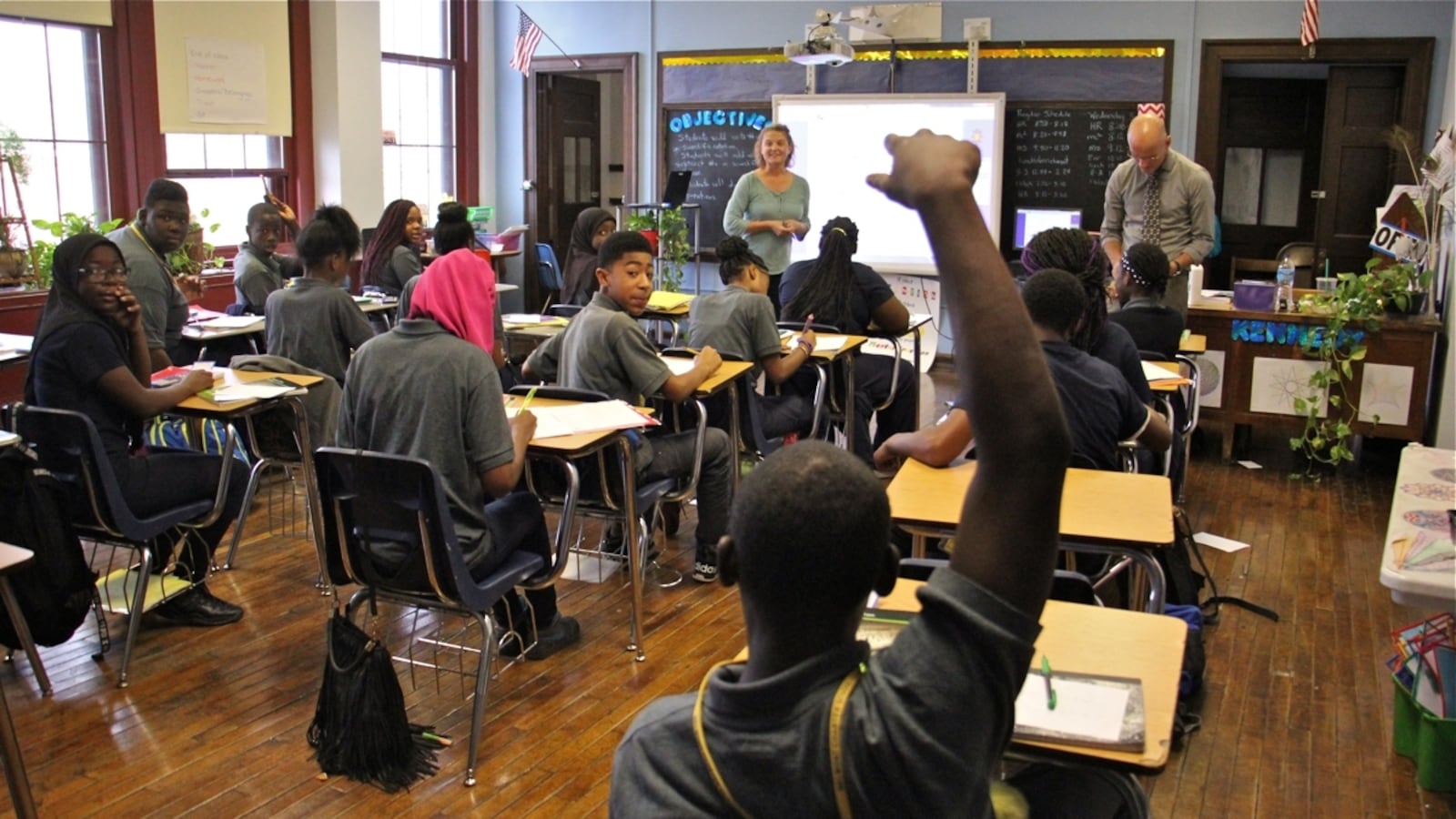This article was originally published in The Notebook. In August 2020, The Notebook became Chalkbeat Philadelphia.
When charter schools expand and more children leave classrooms run by the School District of Philadelphia, a report commissioned by the School District says, it’s not as costly as previously estimated, although the total remains significant.
The much-anticipated report was commissioned by the District in 2015, completed by the consultancy Afton Partners, and obtained recently by NewsWorks/WHYY through a right-to-know request.
The report estimates that each additional charter pupil sets back Philly’s public system by $4,824. For years, the District had estimated the cost at $7,000 per new seat.
The report also concluded that much of the financial burden created by charter expansion could be eliminated if the District aggressively closed traditional public schools that have a lot of empty seats.
The analysis found that, by 2023, charter growth will create inefficiencies that cost the District $56 million annually, which is about 5 percent of its total budget. If the District closed schools where half the seats are empty, however, it could reduce the annual hit by $33 million.
In all, the analysis found that 4 percent of District costs are truly fixed. The remaining 96 percent are either variable or semi-variable, meaning they don’t reduce "proportionately with changes in enrollment" but can be changed over time.
Both supporters and critics of charters will see positives in the new report.
Pro-charter advocates have long argued that the District’s old estimate was inflated and that, in general, their political adversaries overstate the financial detriment that charters cause. The Afton report does suggest the old estimates were high, but it stops well short of suggesting that the burdens are negligible. Perhaps more important, though, it suggests that the district could be doing more to ease the duplicated costs associated with charter growth.
"For a long time, these so-called stranded costs have been characterized as inevitable," said Mike Wang, director of Philadelphia School Advocacy Partners, a pro-charter lobbying group. "The fact is these costs can almost entirely be reduced or eliminated, but doing so requires the District to make what the report characterizes as tough political decisions."
For charter skeptics, the new analysis weakens — without negating — their argument that charter expansion strangles District finances. The Afton estimate of $4,824 per new charter seat does not take into account the District’s debt service payments. If debt service were included, Afton found, the average cost would rise to $6,898 per seat — a figure remarkably similar to the one Philadelphia has long cited.
"This confirms what we have known for a while, and it confirms it from a second expert source," said Donna Cooper, executive director of the nonprofit Public Citizens for Children & Youth. "Some charter school advocates have said that stranded costs are in the one- or two-thousand range. What this does is really blow the lid open."


